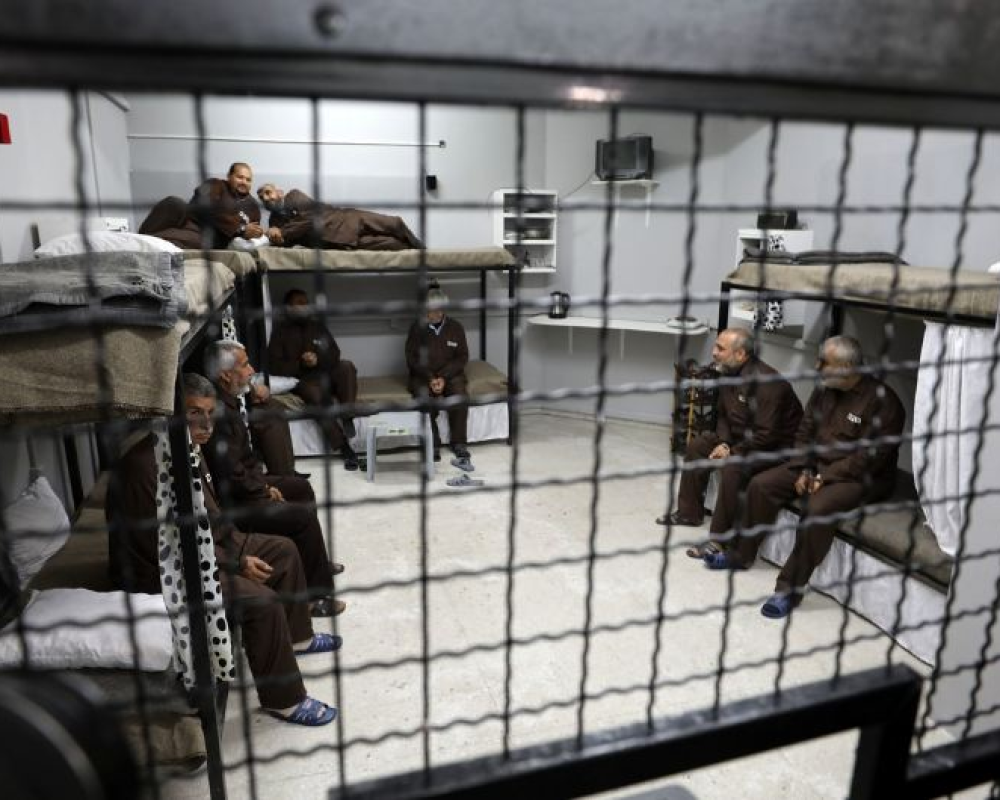
Bethlehem/ PNN/
For the 20th day in a row, thousands of Palestinian political prisoners in Israeli prisons continue their civil disobedience measures against the repression campaign initiated by ultranationalist Israeli Minister of National Security Itamar Ben-Gvir.
Civil disobedience by the prisoners includes the closing of the different prison sections, stopping aspects of daily life, the wearing of a mandatory brown jail uniform and refusing to undergo the so-called daily security check-up.
On February 14, the Supreme Emergency Committee for Palestinian Prisoners Affairs announced the beginning of civil disobedience in response to an ongoing repression campaign by the Israeli prison authorities, including reducing the hours Palestinian prisoners can use the shower area to only one hour a day.
According to the Palestinian Detainees Affairs Commission, the civil disobedience measures will escalate to an open-ended hunger strike beginning on the first day of the upcoming fasting month of Ramadan.
Early in February, Palestinian prisoners in Israeli occupation jails issued a message to their people urging them to get ready for a significant uprising against the oppression campaign by Israel’s extremist National Security Minister Itamar Ben-Gvir.
Ben Gvir announced on January 8 his decision to cancel a policy which allows any lawmaker in the Israeli Knesset to visit incarcerated Palestinians in prison.
Other abusive measures imposed by the Israeli Prison Service on the prisoners also include reducing the amount of water they use, and reducing the duration of showering so that prisoners are allowed to shower at a specific hour.
Since then, the Israel Prison Service (IPS) has begun moving inmates and transferring them between the 20 prisons used exclusively for Palestinian political prisoners.
Human rights organisations have long condemned Israeli prison authorities for their inhumane treatment of Palestinian prisoners.
Palestinians have been resorting to hunger strikes since 1968 to fight issues such as solitary confinement, denial of family visits, inadequate medical treatment, and other degrading conditions.
Currently, Israeli prisons are home to more than Palestinian political prisoners, including 160 children and some 30 women.